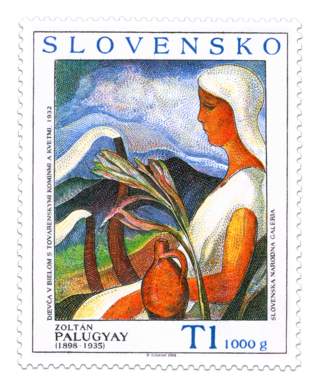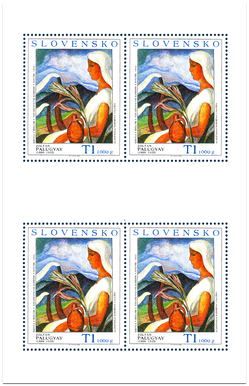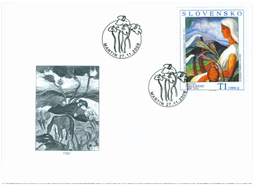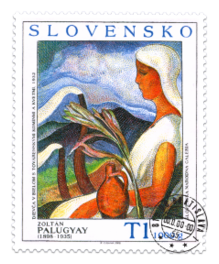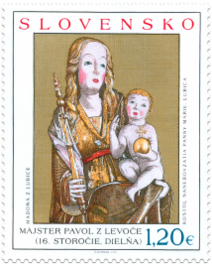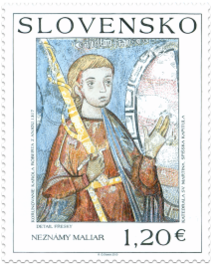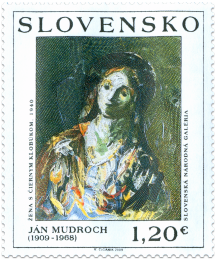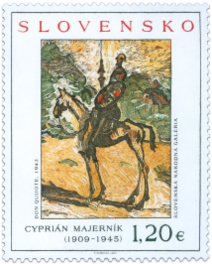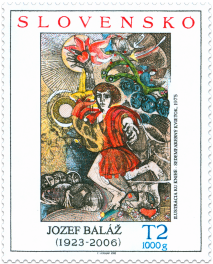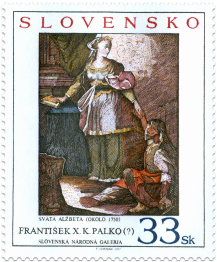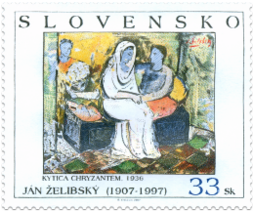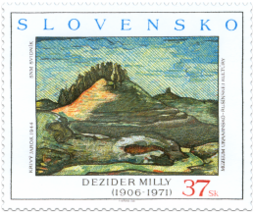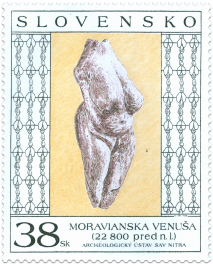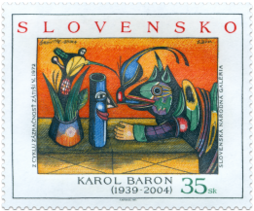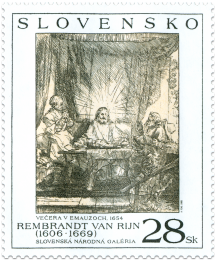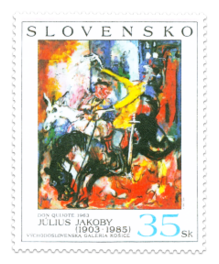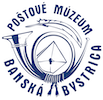435 Date of issue
27.11.2008 Face value
2.60 € Sell price
2.60 €
T1 1000 g responds to the rate of postage of the 1st class up to 1000 g - domestic servis. © Slovak Post, 2008 Zoltán Palugyay (9. 11. 1898 – 18. 9. 1935) is one of the most noted proponents of Slovak Modern in painting. Initially, he was a private student of P. J. Kern, a painter and family friend. Later, he studied at colleges such as the University of Fine Arts in Budapest and the Academy of Fine Arts in Cracow. A stay in Munich provided him with the most modern education and the young painter was impressed by the city’s cultural milieu. After finishing studies, he became acquainted with J. Alexy and M. A. Bazovský. The three teamed up with M. Benka in the latter’s effort to develop a national programme of modern painting, although their respective approaches varied in many respects. The most notable fruit of their friendship was their common project of building the artists’ colony of J. Alexy in Piešťany. Palugyay was also active as a writer, with his contributions focusing on modern painting being published in magazines. During his prolific life he preferred to work with pastel and aquarelle probably as these materials allowed him to find the most profound expression of the emotional nature and moodiness of his motifs. His earlier works were rooted in post-impressionist realism invigorated by expressionism, a pattern that can be traced - at varying intensities - in all of his subsequent works. The most striking example of Palugyay’s unique approach to expressionism is a series of works with the motif of village cottages – Samota (Solitary House, around 1930), Pri dedine (At a Village, around 1930), and Chalupy (The Cottages 1931). The period 1930 – 1932 marks the zenith of the artist’s unfinished opus, in which the monumentality pattern of Palugyay’s expressionism gained momentum and the style gradually shifted towards exaggeration of shape. The result is ‘pantheistic paintings of exuberantly germinating nature, balladic visions of harmonic – almost paradise-like – unity of the human and natural, the civilized and rural’. Such paintings include Krajina s kvetmi (A Country with Flowers) / Nirvána (Nirvana) (1930), and Dievča v bielom s továrenskými komínmi a kvetmi (A Girl in White with Factory Chimneys and Flowers) (1932). Alexandra Kusá
Show lessSimilar products
486 Date of issue
26.11.2010
485 Date of issue
26.11.2010
464 Date of issue
27.11.2009
465 Date of issue
27.11.2009
434 Date of issue
27.11.2008
410 Date of issue
14.11.2007
409 Date of issue
14.11.2007
385 Date of issue
20.10.2006
386 Date of issue
20.10.2006
365 Date of issue
20.10.2005
364 Date of issue
20.10.2005
336 Date of issue
20.10.2004
© 2024 POFIS - Postal philatelic service. All rights reserved

